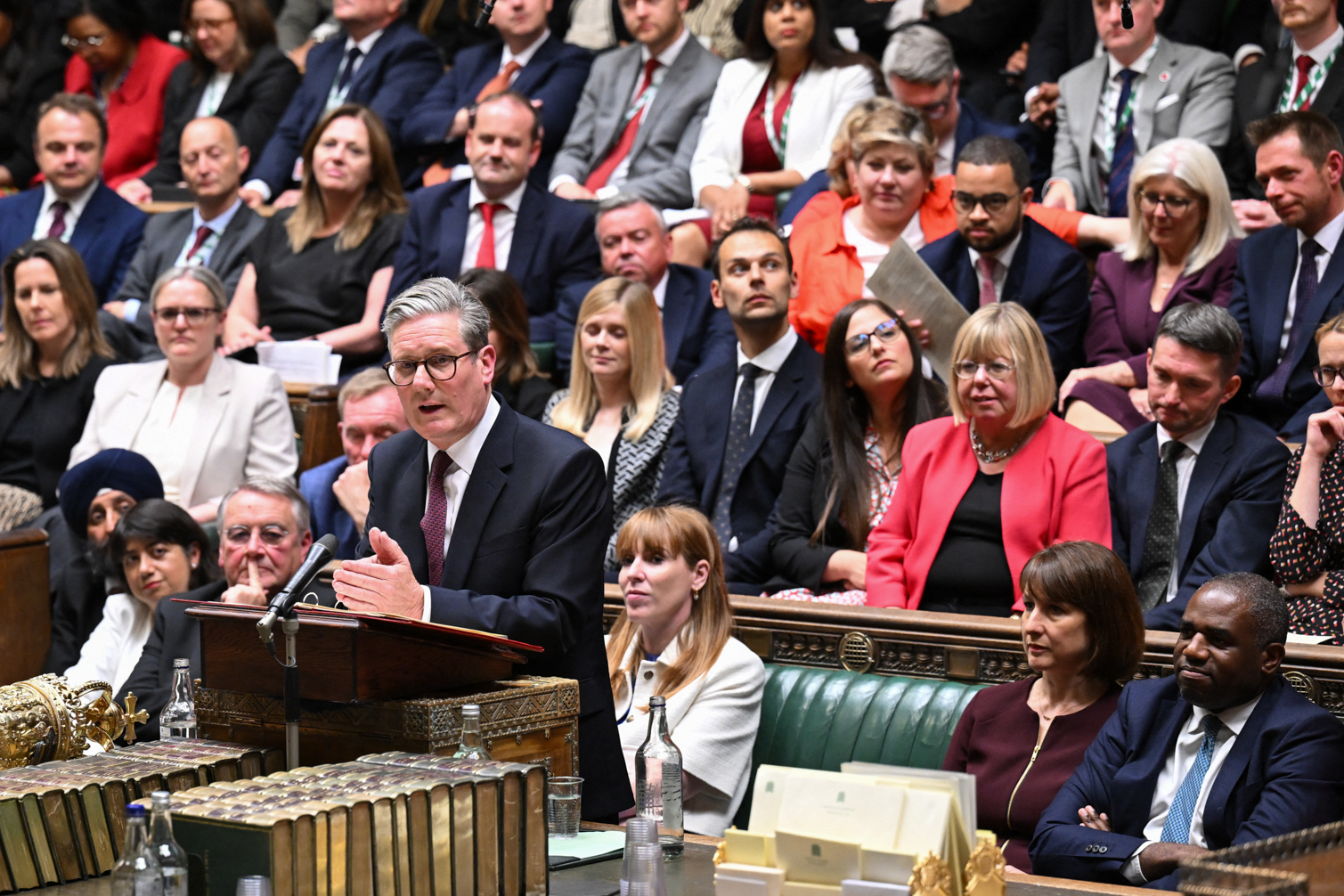
I have taken a break from writing, for personal reasons – all valid, I assure you. The world, I think, was neither the richer or the poorer for my absence, nor was it exposed to an existential threat due to my sabbatical. Writers come and writers go, as do the clicking sounds of the clock – marking time. I have tried, as much as was possible, to be as Rip Van Winkle. But then, while I was trying to enjoy the quiescence of my self-imposed literary exile, I seemed to have been bated or enticed to write something, by news that had come from across the waters to us in North America and the Caribbean, of the, relatively, smooth transition of government which took place, recently, in the United Kingdom. No sooner had I begun to learn the name of the previous prime minister, one who it was said, had come to preeminence due to internal political intrigue and infighting, I have now been assigned the task of learning the name of the new prime minister, by fate, a man who has already met with the king towards forming the new government according to British political tradition.
“And what, pray tell, has stirred you from your slumber, before you go back to sleep, my brother?” one might ask. And, my reply to that question is this, “It appears that the American Revolutionary War, or, in other terms, the American War of Independence, from the British Empire, was not only a complete failure, but it was also based upon an utter farce – one of sheer republican propaganda or idealism – given the political turmoil which now exists on the American political landscape. In that war, which was waged between April 19, 1775 and September 3, 1783, the American Patriot forces, organized as the Continental Army, and commanded by General George Washington, one who later became the country’s first president, defeated the British Army. The colonists were up in arms about being taxed without appropriate representation in government, and had developed an ire towards monarchy. Being ruled by a king was anathema to them, it was said. And yet, the kind of turmoil and handwringing going on now as the United States heads towards elections, which have been scheduled for this November 2024, with no monarch or noble on the ballot, nor any seeking to usurp it, was not evident in the United Kingdom – which is a monarchy. How so? You have no king America, you have no nobility – so what is your problem?
Thomas Jefferson, a U.S. founding father and the nation’s third president was reported to have said: “I was much an enemy to monarchy before I came to Europe. I am ten thousand times more so since I have seen what they are. There is scarcely an evil known in these countries which may not be traced to their king as it’s source, nor a good which is not derived from the small fibres of republicanism existing among them.” I am willing to gamble that many of his contemporaries shared his sentiments. And yet, without discounting the horrors perpetrated upon the populace in France, in England and in other parts of the world, by monarchical rule, I wonder why some politicians in the United States and in France have been pandering to totalitarianism or to some strain of oligarchy? Why does the notion of a “strong man” – one exercising despotic rule over them – have such a hold as a Siren does on unsuspecting sailors? Now it is bad enough when politicians have such leanings, but when the U.S. Supreme Court justices, who are the mandated guardians of the Constitution and the arbiters of justice, can issue a ruling that gives a president the same sort of immunities as a monarch, that is another matter altogether. Perhaps colonial America was never really ready for independence. Then, again, perhaps, the colonists were not as disaffected with the monarchy as they led the world to believe.
Based on how some politicians have been behaving, and also the right-wing extremists within the electorate, what arguments can Americans now muster, therefore, in defense of why the United States was founded? And their defense against such scrutiny ought not to be limited to abstract ideological discourse, but it should be based also upon objective and practical observations of the electoral process with all of its idiosyncrasies and pitfalls. There are right-wing politicians in the United Kingdom as there are in the United States. There are Socialists in both. There is racism there as it is here in the U.S., and some might even argue that it was in the socio-political womb of the former that it was conceived. There are economic interests there which share the same ideas and attitudes of many so-called fiscal conservatives here. Prime Minister Margaret Thatcher, for example, was their champion as was her compadre on this side of the Atlantic Ocean, the revered President Ronald Reagan. And yet, the United Kingdom appears to be handling the transition of power in a more peaceful and adult manner. Why is that?
There has been much talk over the years in the United Kingdom of ridding the nation of its trappings of the pomp and circumstance of monarchy, perhaps more out of fiscal concerns than due to any other reason. If memory serves me well, I believe that that was the main reason that Her Majesty, Queen Elizabeth II, was made to part ways with her beloved yacht, The HMY Britannia, in 1997, the one that she used on one of her trips to Jamaica when I watched her motorcade traveling from where it was docked, on the streets of Kingston, when I was a small boy. But the world is yet to see anything akin to January 6th, 2021, on the steps and within the corridors of the British Parliament, as it did within the precincts of the United States Capitol building, which is not too far from where I attended university as a young man. But that does not seem likely given the different form and tone of British patriotism, especially when it is compared to that in the United States. In fact, Americans are always enthralled by royal coronations, by royal weddings, by royal births, by royal funerals and by royal intrigues and scandals to boot. Why is that? Is that a reflection of a love for monarchy “on the down low”?
I believe that Americans, despite their passionate protestations to the contrary, are some of the most ardent anglophiles on this planet. Their reverence for the Magna Carta, which is a British document, is evidence of that. The Magna Carta was issued in June of 1215 and it was the first document to put into writing the principle that the king and his government were not above the law. It sought to prevent the king from exploiting his power, and it placed limits on royal authority by establishing law as a power in itself. The British seemed to have embraced those principles, whereas that does not seem to be the case in America where no potentate sits on a throne. Again, why is that the case?
And so, before I leave my brief awakening and return again to my slumber, I must ask, also, against the early quotation on monarchy from Thomas Jefferson: “Was the Revolutionary War really due to any serious hatred on the part of the colonists for King George III, or was it, in truth, directed more towards his Parliament, for which he was but a figurehead, and which consisted of Lords and of people who were of their station in life, an aggregation which ran the affairs of state?” Again, “Was it just a squabble over money – leading to their maxim, ‘No taxation without representation’?” From my reading of U.S. history, the founders of the new nation never waged war in order to promote democracy, but more so to create a new order, one close in resemblance to what they were used to, with their landowning monied classes still at the top, but without the taint of monarchy. The Electoral College was instituted in the presidential elections because of the distrust of the upper class for the whims and the fancies of the ordinary people in the street. It is a symbol of enshrined classism which became complicated and exacerbated by racism an by other forms of bigotry. Gerrymandering also seeks to undercut the will of the people, without a monarch to be used as a scapegoat.
John Adams, America’s second president, was quoted as saying about democracy: “The history of all ages shows that the caprice, cruelties, and horrors of democracy have soon disgusted, alarmed, and terrified themselves.” Outside of their historical context, those words could be seen to have been uttered by a monarchist, could they not? Would not that then, give a morally weird justification for the U.S. Supreme Court granting presidents immunity from criminal prosecution while in office? Would that not also give the same leverage to the document called Project 2025, inspired by the politically conservative, tax-exempt think tank, the Heritage Foundation, which seeks to tilt the U.S. presidency more towards monarchy, regardless of the democratic principles now enshrined in the U.S. Constitution? The British might have been right about monarchy, if the behavior of modern day Americans is anything to go by. Food for thought.



